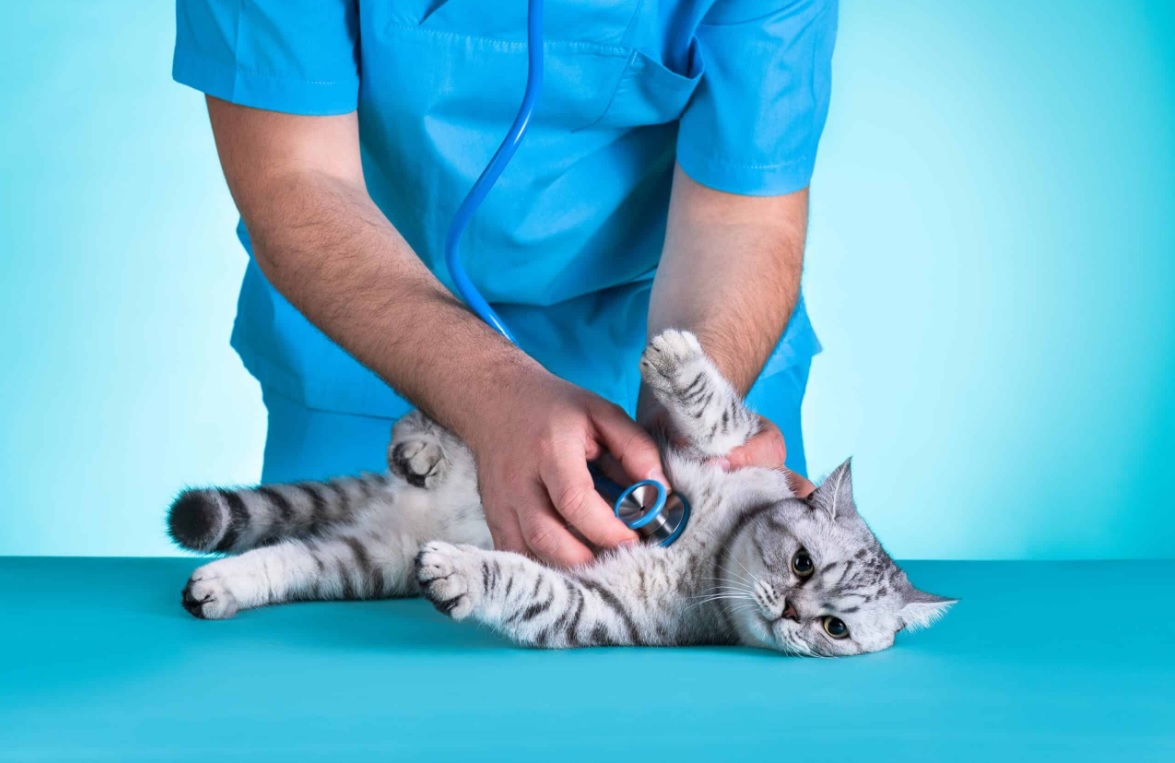Owning a pet is one of the most gratifying experiences, offering companionship, loyalty, and love. However, it also comes with great responsibility. This article compiles essential pet health tips every owner should know to ensure their companion thrives. From preventive checkups to mental stimulation, these vet-approved guidelines form the backbone of proactive pet care.

1. Regular Vet Visits: The Cornerstone of Prevention
Just like humans, pets benefit enormously from routine veterinary examinations. Scheduling annual or bi-annual visits allows early detection of health issues before they become serious. The American Veterinary Medical Association emphasizes that “wellness exams provide an opportunity to discuss your pet’s lifestyle, nutritional needs, vaccinations, parasite prevention, and overall well‑being” :contentReference[oaicite:1]{index=1}.
During these visits, your vet may perform:
- Physical exam (heart, lungs, weight, coat)
- Vaccinations and boosters
- Parasite screenings and preventive measures
- Bloodwork or lab testing to monitor internal health
2. Balanced Diet: Fueling Immunity and Longevity
A well-balanced diet is not just about filling the bowl—it’s about providing essential nutrients that support your pet’s immunity, longevity, and quality of life. Veterinary research consistently shows that high-quality diets—whether commercial or whole-food—can significantly enhance immune function, improve coat and skin health, and reduce inflammation :contentReference[oaicite:1]{index=1}.
Clinical trials in dogs suggest that whole-food diets may help regulate inflammatory biomarkers, with lower TNF-α-to-IL-10 ratios and increased IL-8 production—both signs of a more robust immune response :contentReference[oaicite:2]{index=2}. Meanwhile, the Riney Canine Health Center highlights that “proteins, fats, and many vitamins and minerals are necessary for immune cells and molecules” :contentReference[oaicite:3]{index=3}. These findings reinforce the value of balanced nutrition as one of the most impactful pet health tips.
To implement this:
- Choose AAFCO-approved foods tailored to your pet’s species and life stage.
- Consider whole-food or minimally processed diets if lab-tested and vet-approved.
- Supplement carefully—vitamins C, E, certain minerals, and phytonutrients may help, but only under professional guidance :contentReference[oaicite:4]{index=4}.
- Avoid overfeeding treats or table scraps that may cause obesity or nutritional imbalance.
3. Exercise and Mental Stimulation: Beyond Physical Fitness
Regular exercise benefits your pet physically, but combining it with mental stimulation helps prevent behavior issues and enhances mental well-being. Studies confirm that daily activity reduces anxiety, promotes relaxation, improves cognitive function, and strengthens the bond between pet and owner :contentReference[oaicite:5]{index=5}.
According to FetchingDog.net, “Mental stimulation is very important for your pet. It keeps their mind sharp and helps prevent boredom. This can also stop destructive behaviors” :contentReference[oaicite:6]{index=6}. Similarly, the Mayo Clinic reports that pet ownership encourages regular physical activity—walking dogs or engaging with cats—which improves cardiovascular health and reduces loneliness :contentReference[oaicite:7]{index=7}.
Practical ideas include:
- Daily walks for dogs or play sessions for cats.
- Puzzle feeders, scent games, or training tasks.
- Rotate toys weekly and introduce new challenges.
- Use outdoor time or socialization safely to expose pets to new stimuli.
Combining physical activity with mental engagement creates a holistic wellness routine and is a powerful set of pet health tips for any devoted owner.
4. Dental Care: Protecting Vital Health
Oral health is often overlooked, but it plays a critical role in your pet’s overall well-being. Periodontal disease affects up to 80% of dogs and cats by age three, and untreated gum inflammation can lead to systemic conditions such as heart and kidney disease.
Daily brushing is ideal, but if that’s not possible, use dental chews, toys, or enzymatic rinses recommended by your veterinarian. The Veterinary Oral Health Council (VOHC) confirms that “chemical agents that reduce dental plaque and calculus have been associated with reduced periodontal disease.” These preventative steps remain some of the most important pet health tips for long-term vitality.
Schedule professional dental cleanings annually or when advised. These often include:
- Thorough scaling and polishing
- Assessment of tooth integrity
- X-rays to reveal hidden issues
Maintaining clean teeth isn’t just cosmetic—it contributes to reducing dental pain, infection, and systemic health risks.
5. Parasite Prevention: A Non-negotiable Routine
Parasites such as fleas, ticks, heartworms, and intestinal worms pose serious health threats that can be prevented with routine care. According to the Companion Animal Parasite Council (CAPC), yearly prevention drastically lowers disease transmission risks.
Topical treatments, oral medications, and collars each have unique benefits. Research from the Pet Poison Helpline highlights that “using broad-spectrum preventive products not only protects individual pets but also minimizes environmental contamination.” Always consult your vet to choose products tailored to your pet’s species, age, lifestyle, and regional parasite trends.
A recommended schedule includes:
- Monthly heartworm preventive (especially dogs)
- Spot-on flea and tick treatment every 4–8 weeks
- Quarterly deworming if your pet is at risk
These steps rank among the essential pet health tips owners must follow.
According to VCA Animal Hospitals, “avoiding an illness is always better than treating it, and when it cannot be avoided, intervention is always more effective if started sooner than later” :contentReference[oaicite:2]{index=2}. In combination with quality care at home, this forms a solid layer of protective pet health tips.
Watch This: Vet-Approved Pet Health Tips
6. Emotional Bonding: The Heart of Pet Wellness
While preventive care and nutrition are critical, the emotional connection you build with your pet has a powerful impact on their health. Studies show that pets with strong bonds to their owners exhibit lower stress levels, improved mood, and even faster recovery from illness—making emotional care a cornerstone of holistic pet health tips.
You can nurture this bond through activities such as:
- Daily playtime or cuddle sessions
- Training exercises that build trust and communication
- Consistent routines like feeding, walks, and grooming
Small, consistent actions build confidence and affection, contributing to better behavior, reduced anxiety, and overall wellness.
7. Staying Observant: Catch the Signs Early
Your pet relies on you to notice small changes before they escalate. A simple change in appetite, drinking habits, energy levels, or litter box use can indicate health issues below the surface. According to veterinary experts, early detection significantly improves outcomes, reduces treatment costs, and enhances quality of life—making observational vigilance essential among **pet health tips**.
Include these habits in your routine:
- Weigh your pet monthly or track their body condition score
- Note any behavioral changes: hiding, irritability, or lethargy
- Check coat, skin, eyes, ears, and breath for signs of issue
- Review elimination habits and litter box cleanliness
By staying attuned to your pet’s habits, you act early, helping prevent serious conditions and deepening your connection.

No guide is complete without prepping for emergencies. If your pet shows any of the following, seek veterinary care right away:
- Continuous vomiting or diarrhea
- Difficulty breathing or persistent coughing
- Bleeding from mouth, nose, rectum, or urinary tract
- Sudden collapse, seizures, or inability to walk
Keep a pet first-aid kit ready and know your nearest 24/7 emergency vet. These measures reflect proactive pet health tips that can be lifesaving in urgent moments.
FAQ: Essential Pet Health Tips in a Nutshell
Q1: What are the most important pet health tips for new owners?
The key pet health tips for new owners include scheduling regular vet visits, feeding a balanced diet, ensuring daily exercise, prioritizing dental care, and practicing effective parasite prevention. Emotional bonding and early detection of behavioral changes also play crucial roles in maintaining wellness.
Q2: How often should I take my pet to the vet?
Most pets benefit from an annual check-up. However, young puppies and kittens, senior animals, and pets with chronic conditions may need more frequent visits. Your vet can tailor a schedule based on your pet’s age, breed, and health status.
Q3: What’s a simple daily habit that improves pet health?
A simple yet impactful habit is consistent observation. Monitoring appetite, bathroom habits, energy levels, and coat condition can help identify issues early. Combining this with interactive play and affection reinforces trust and mental well-being—both crucial pet health tips.
Q4: What signs should prompt an immediate vet visit?
Any sudden changes—like vomiting, trouble breathing, collapsing, or visible pain—should be taken seriously. When in doubt, it’s safer to call your vet than delay treatment. Early response can be lifesaving in emergencies.
Final Thoughts: Compassion Is the Best Medicine
At the heart of every tip, technique, and routine lies a simple truth: your love matters most. Regardless of breed, size, or species, pets thrive in environments filled with attention, patience, and care. Whether you’re brushing their coat, preparing a meal, or playing fetch, you’re doing more than keeping them happy—you’re extending their life.
And as pet owners, staying informed is part of the journey. Conditions like common cat illnesses or breed-specific risks may seem daunting, but with awareness, they become manageable. The more you learn, the better equipped you are to protect your furry friend’s health at every life stage.
In conclusion, following proactive pet health tips — from vet care and nutrition to bonding and emergency readiness — ensures your pet doesn’t just live, but lives well. Keep loving, keep learning, and enjoy the incredible companionship your pet brings. Their wellness starts with you.




